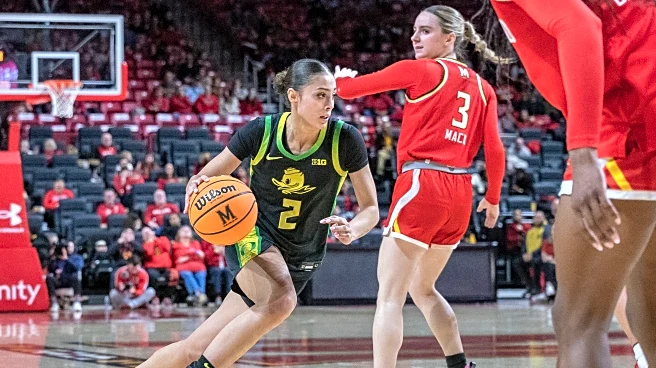What's Happening?
Ropes & Gray, a prominent law firm, has decided to maintain its one-tier partnership model, diverging from the prevalent two-tier system adopted by most major U.S. law firms. In the two-tier model, some partners hold equity in the firm while others do not.
The decision by Ropes & Gray to stick with a single-tier model has sparked discussions about the potential reversal of the trend towards non-equity partnerships. According to insights shared on the podcast 'On The Merits,' featuring law firm consultant Janet Stanton and legal recruiter Scott Love, non-equity partnerships are widespread and offer certain benefits to law firms. However, the guests emphasized the importance of careful management to ensure these partnerships are effective.
Why It's Important?
The decision by Ropes & Gray to maintain a one-tier partnership model is significant as it challenges the prevailing trend in the legal industry towards non-equity partnerships. This model can impact the firm's internal dynamics, potentially affecting partner motivation and firm culture. For the broader legal industry, Ropes & Gray's approach may prompt other firms to reevaluate their partnership structures, considering the benefits and drawbacks of equity versus non-equity models. The choice of partnership model can influence firm stability, partner retention, and overall competitiveness in the legal market.
What's Next?
As Ropes & Gray continues with its one-tier model, other law firms may observe its outcomes to assess the viability of similar structures. The firm's decision could lead to discussions within the legal community about the effectiveness of different partnership models. Stakeholders, including law firm leaders and partners, might consider the implications for career progression, compensation, and firm governance. Additionally, the industry may see further analysis and debate on the long-term impacts of partnership models on firm performance and partner satisfaction.
Beyond the Headlines
The choice of partnership model at Ropes & Gray highlights deeper considerations about equity, fairness, and career advancement within law firms. The decision may influence cultural aspects of the firm, such as collaboration and inclusivity, as partners navigate their roles without the distinction of equity status. This development could also prompt discussions on the ethical dimensions of partnership structures, including transparency and equitable treatment of partners.















